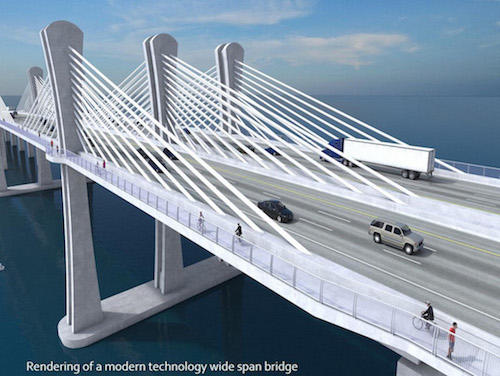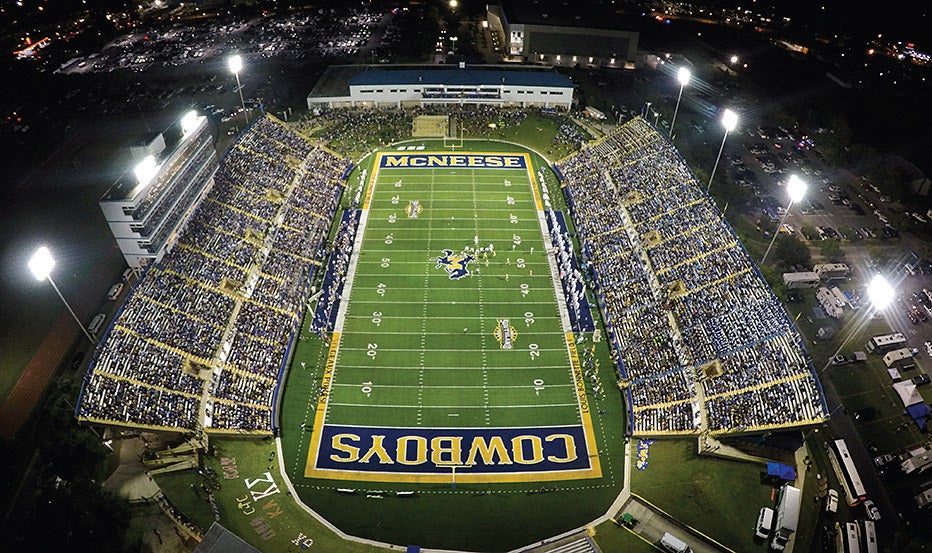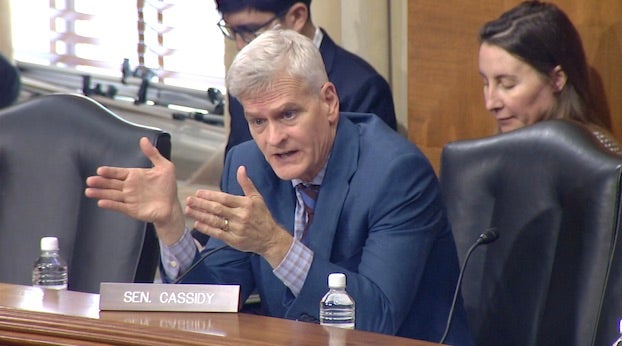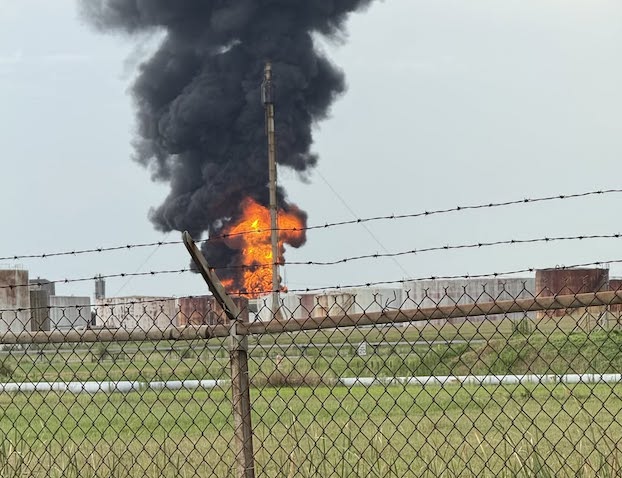Jim Beam column:Don’t mess with bridge plans
Published 6:48 am Thursday, April 7, 2022

- One design for a new Interstate 10 bridge over the Calcasieu River at Lake Charles features most of the safety and other features of a modern structure.
Legislators meeting in Baton Rouge need to heed the words of advice from George Swift about replacing the Interstate 10 bridge here that were expressed in this newspaper Tuesday. Swift is president/CEO of the Southwest Louisiana Economic Development Alliance.
“In recent days there have been developments in the Legislature that might jeopardize this project,” Swift said. He said critics need to remember the progress that has been made already.
“Let’s applaud the state for moving ahead with this project,” Swift said. “What is needed now is to stay out of the way and let the process work. It boils down to this: You are either ‘For’ the bridge or ‘Against’ it. The time for talk and delay is over.”
Trending
The House Transportation Committee Tuesday rejected one bill that would have jeopardized the bridge project, according to testimony from Dr. Shawn Wilson, secretary of the state Department of Transportation and Development (DOTD).
Rep. Les Farnum, R-Sulphur, in House Bill 814 wanted to prohibit DOTD from using tolls on existing interstate systems that are being improved. Farnum said, “I don’t want anybody to be tolled. It is just fundamentally wrong.”
Present law prohibits tolls or user fees from being imposed on any existing roads, bridges, tunnels, or overpasses. However, there is an exception that authorizes tolls or user fees on any existing roads, bridges, tunnels, or overpasses that are being improved or expanded.
Farnum wanted to remove that exception, which means tolls may have been prohibited on the new I-10 bridge here and elsewhere. If tolls aren’t allowed, prospective construction companies would be reluctant to get involved in the project.
Legislators on the committee agreed. Six of them voted for the bill, but nine were against. Those against apparently agreed with Wilson who said, “It is really about: Do we want to build these big projects or do we want to talk about them for another 30 years?”
Baton Rouge area legislators want a new I-10 bridge there and they opposed Farnum’s legislation. Opponents also included the Baton Rouge Area Chamber, the Louisiana Association of Business and Industry, Ascension Parish government, and Greater New Orleans Inc.
Trending
Eric Cormier, policy vice president for the Chamber SWLA, testified that his organization also opposed Farnum’s legislation.
The state plans to seek proposals for the Lake Charles bridge that would utilize a “P-3,” a public-private partnership. Wilson said that helps finance mega-projects in exchange for tolls, a long-term source of funding.
Swift said four major organizations are considering submitting their bids, which would be received in February of 2023. If tolls aren’t part of the funding process, Wilson said mega-projects won’t be constructed.
Environmental problems have delayed new Lake Charles bridge construction, Wilson said. However, he told the committee planning has been in the works for some time and ground could be broken for the project next year.
Tolls aren’t allowed on the I-210 bridge here, so that route would always be available to those who don’t want to pay tolls. Most of the tolls on a new I-10 bridge would be paid by interstate travelers, not local residents.
The state has already committed $300 million for the local bridge. Wilson said the estimated cost is $1.2 billion, which includes a Sampson Street interchange in Westlake.
The Chamber SWLA created the I-10 Bridge Task Force in late 2017, which gives it a strong voice and credibility in getting a high state priority for a new bridge.
The possibility of needing tolls to help pay for the bridge has always been a controversial issue. Those involved in promoting the project understand that and are making every effort to keep possible tolls as low as possible. There could even be funding that would be used to pay tolls for local and area residents.
Texas and Florida have some of the finest roads in the country, and tolls are a major source of income in both states. There are 25 toll roads in Texas. That’s because low revenues from its 20-cent-per gallon gasoline tax, the same as Louisiana’s, is producing low revenues.
Texas gets 40 percent of its transportation funds from the federal government. It also gets transportation funding from oil and gas production taxes, general sales taxes and the sales tax on motor vehicles and rentals.
When it comes to tolls, Louisiana’s legislators need to “let sleeping dogs lie.” As Swift said, progress is finally being made on getting a new bridge here. Legislators need to stay out of the way and leave it up to the experts.





